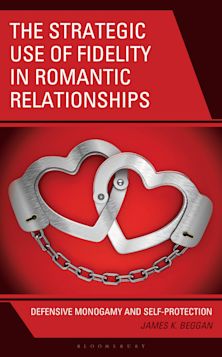- Home
- ACADEMIC
- Psychology
- Psychology - Other
- In Search of Return
In Search of Return
Mourning the Disappearances in Kashmir
In Search of Return
Mourning the Disappearances in Kashmir
You must sign in to add this item to your wishlist. Please sign in or create an account
Description
Beginning in 1989, more than 8,000 men disappeared in Kashmir. These disappearances were publicly denied, leaving mourners to grapple with unrecognized grief. Drawn from ten years of psycho-historical research in Kashmir, Shifa Haq reflects on the bereaved families’ intricate experiences of mourning. Haq expands the psychoanalytic understanding of loss and argues for a mourning that includes porous affective links with the political.
Table of Contents
Acknowledgments
Introduction
1 The Work of Mourning
2 Disappearing Act
3 Tracing Back, Moving Forward
A House with No DoorsComb GentlyThree Days in the River4 Bearing Witness, Imagining Disappearance
5 The Shape of Mourning
Reference
Subject Index
About the Author
Product details
| Published | 10 Dec 2020 |
|---|---|
| Format | Ebook (Epub & Mobi) |
| Edition | 1st |
| Extent | 172 |
| ISBN | 9781498582490 |
| Imprint | Lexington Books |
| Series | Psychoanalytic Studies: Clinical, Social, and Cultural Contexts |
| Publisher | Bloomsbury Publishing |
Reviews
-
As I write this review, Ukraine is suffering untold devastation from Russian military attack and invasion. The collective trauma is horrific. The bombing is incessant. Millions have become refugees in a matter of weeks. Like many people worldwide who are witnessing these horrors, I seek to have courage in the face of fear, sustain faith, and be an agent of change within the collective. In the course of my own suffering of the current collective trauma, I turned toward Shifa Haq’s In Search of Return: Mourning the Disappearances in Kashmir.... In her writing about the Kashmiri collective trauma, Haq opens the reader to a deeper register of pain, helping us also to bear witness to that previously disavowed trauma. She restores not only our humanity but also our collective ability to foster healing from trauma that, on a spiritual level, affects all of us. Shifa Haq’s book opens windows of faith.
Jung Journal: Culture & Psyche
-
Shifa Haq’s book is a prose poem written to honor the disappeared of Kashmir and those who unceasingly mourn them. Haq is as adept at guiding the reader through deep theoretical meditations on mourning as she is bearing witness to the experiences of those whose ferocious suffering she shared over many years. She asks us, her readers, to listen to the voices of the mourners and to host a reciprocal remembering that keeps alive the demands of the sociopolitical ghosts of Kashmir.
Lynne Layton, Harvard Medical School
-
This book gives one of the most profound and insightful presentation of what it is to lose and what mourning implies that I have ever read. The work of Shifa Haq is situated in Kashmir, a region plagued by severe atrocities where thousands have been killed and many have disappeared. The wars and the Human Rights Violations in today’s world leaves increasingly many in situations where they lose close ones and often don’t know their destiny: the dead without a grave, the mourners without a place to mourn.
Shifa Haq gives words to those who have lost, and also to those who have disappeared.
In this book we find strategies that can give mourning a space and form in the social context, making it visible that mourning is a social process and an unconscious political that takes place in families and social groups – and that needs to be acknowledged by society at large. This book is the most important contribution to psychoanalysis on the subject of loss and mourning that I have ever read.Sverre Varvin, Oslo Metropolitan University
-
Shifa Haq recounts, with sensitivity and compassion, many stories of interrupted lives, of anguished survival, of unending mourning along with life affirming rituals of memorialization from the spectacularly beautiful yet ravaged and devastated landscape of Kashmir. Like other parts of the world which have borne the onslaught of militarization, Kashmir too has grappled with decades of extreme circumstances. In Search of Return is based on a psychoanalytic researcher’s journey of becoming a ‘hamdard’ or a co-sufferer in pain who empathetically participates in the trying context of those she pauses to listen to.
Acquiring a flow, In Search of Return ascends to a remarkable level of ethical engagement. It impels us to recognize the life enhancing value of mourning and grieving without ever becoming judgmental and prescriptive in its tone or content. It delicately perches itself in the ‘inbetween’ zones where grief and pain blend into forms of creative remembrance and resistance, and where ‘going ahead’ remains contingent on ‘keeping the lost one alive' within the self.Honey O. Vahali, Ambedkar University Delhi

ONLINE RESOURCES
Bloomsbury Collections
This book is available on Bloomsbury Collections where your library has access.



































